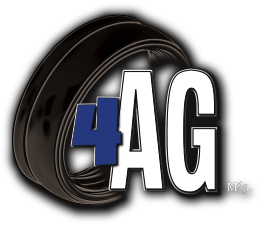Cultivating Excellence: The Cultivator Gauge Wheel Story
In modern agriculture, the importance of cultivators in secondary tillage cannot be overstated. These remarkable machines play a vital role in preparing the soil for planting and their significance lies in their ability to bring precision to the farming process. Cultivators are indispensable, whether breaking up compacted soil, eliminating bothersome weeds or ensuring optimal aeration for nutrient absorption. Among their key features, the cultivator gauge wheel is crucial, helping maintain a consistent depth during tillage. In this article, we'll explore the different types of cultivators, from disc cultivators to rotary and prong cultivators and even animal-drawn options. We'll also delve into the limitations that come with these farming tools. So, let's dig deeper into the world of cultivators and understand why they're so vital for modern farming.
All About Cultivators and Cultivator Gauge Wheels
Cultivators are the backbone of secondary tillage, a crucial step that follows initial plowing in modern agriculture. These versatile machines perform a range of essential tasks, from breaking up compacted soil to eliminating stubborn weeds and even aerating the earth for improved nutrient and moisture absorption. What truly distinguishes them is their unwavering precision, thanks in no small part to critical components like the cultivator gauge wheel. This unassuming yet pivotal wheel ensures a uniform depth during tillage, guaranteeing consistent soil preparation across the entire field.
Exploring Diverse Cultivator Varieties
Disc Cultivators: Soil Wizards in Action- Disc cultivators come equipped with rotating discs designed to penetrate and break up soil. That is especially effective for hard or clayey soils that require substantial cultivation effort. The cultivator gauge wheel plays a pivotal role in these machines. It ensures that the rotating discs maintain a consistent depth as they work through the soil, making it a versatile tool that can be adapted to different soil conditions.
Rotary Cultivators: Nature's Gentle Tiller- This type uses a set of rotating blades or "tines" to dig into and turn the soil. Rotary cultivators are generally used for shallow tillage and are most effective on softer, sandy soils. Including a cultivator, a gauge wheel allows for adjustment of the cultivation depth. This feature adds another layer of customization, enabling farmers to set the machine according to their specific soil and crop requirements.
Prong Cultivators: Precision Soil Sculptors- Prong or Tine cultivators are designed for more targeted soil manipulation. Their prongs dig deep into the soil, breaking it up and allowing for enhanced aeration and water absorption. The robust cultivator gauge wheel is integral in this type as well. It helps maintain an effective operational depth, ensuring that the prongs penetrate the soil uniformly for optimal aeration and weed removal.
Tractor-Powered Cultivators: Farming Titans
Trailblazers of Tillage: The Power of Trailed Cultivators- Trailed cultivators are attached to the back of a tractor and are commonly used for large-scale operations. These units cover more ground in less time, offering high efficiency. This gauge wheel is especially important in these larger units. It helps control the depth and angle of soil penetration, allowing for precise and effective tillage on a large scale.
Mounted Cultivators: The Art of Precision- These cultivators are directly mounted onto the tractor, offering greater control and precision. They are generally used for more detailed work where finesse is required. In this setup, such a wheel also ensures that the implement maintains a consistent depth across the field, which is crucial for uniform soil preparation.
Flexible Tines and Precision: Spring-Loaded Cultivators- This cultivator is extremely adaptive to varying soil conditions. The spring-loaded tines offer a certain level of flexibility, which is useful when encountering underground obstacles like rocks or roots. The cultivator gauge wheel complements this feature by helping to maintain an even operational depth, thus ensuring that the machine works efficiently without causing any damage.
Rigid Tine Cultivators: Taming Tough Terrain- Rigid tine cultivators are heavy-duty variants, well-suited for harder, more compacted soils. These units offer less flexibility, but their strength can be advantageous. The wheel in these machines helps maintain a uniform depth, ensuring the strong tines do their job effectively without over-penetrating the soil.
Traditional Charm: Animal-Drawn Cultivators- For farms that favor traditional methods, animal-drawn cultivators offer an alternative. These implements can also be equipped with a cultivator gauge wheel, ensuring that even traditional methods benefit from modern precision.
Understanding Cultivator Constraints
While cultivators offer numerous advantages, they aren't without drawbacks. The initial cost of these machines can be prohibitive for smaller farms. Operational complexity also requires a certain level of expertise. Furthermore, incorrect usage can lead to undesirable outcomes like soil compaction or even an increase in weed growth, making it essential to understand the machine's limitations. However, it is worth trying.
Experience the Future of Farming Today!
Ready to elevate your farming to new heights? Turn to 4AG Manufacturing for innovative solutions that revolutionize your planting game. Our cutting-edge planter tires redefine precision in crop planting. Don't let the opportunity slip away to boost your crop yield and reduce effort. Take the step to upgrade your equipment today and witness the future of farming unfold before your eyes.

